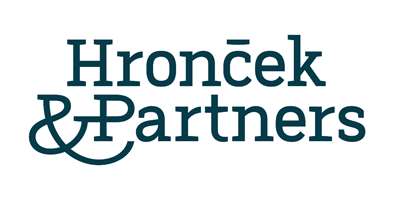While other European Union countries offer effective mechanisms for protecting family assets and ensuring their smooth transfer between generations, Slovakia still lacks legislation that would allow trusts to be established under domestic jurisdiction.

Unlike the Czech Republic and other European Union countries, the Slovak Republic does not yet have its own legislation governing trusts. Trusts can be thought of as the purposeful allocation of assets to a separate legal entity that has no owner, only an administrator.
Through this process, the property is separated from the founder's property, who may determine the principles of its management and operation in the future. Although trusts are commonly used abroad, Slovakia has not yet adopted legislation that would enshrine this institution in our legal system.
In the classic sense, trusts do not have legal personality, i.e., they are not legal entities, and an administrator acts on their behalf. This mechanism is often used by business and wealthy families seeking more efficient ways to manage and protect their assets.
Trusts enable the smooth transfer of assets between generations and eliminate risks such as fragmentation or devaluation.
Lack of legal regulation for trusts
A similar solution can be found in private foundations, or "endowment funds" in the Czech Republic. These are assets that have legal personality – they are legal entities with a registered office and mandatory bodies. In a sense, they are similar to trusts.
Furthermore, Slovakia does not recognize foreign trusts without legal personality, which causes complications in their registration as owners of real estate or securities. From a tax law perspective, it is not clear how income from trusts should be taxed.
Slovakia is not a signatory to the 1985 Hague Convention on the Law Applicable to Trusts and on their Recognition, which could simplify the situation.
In 2023, the Ministry of Justice attempted to introduce one form of trust into Slovak legislation by amending Act No. 34/2002 Coll. on foundations. However, this proposal did not pass the second reading.
Draft law on family foundations
The proposed law was intended to introduce a new legal form – a private foundation for private purposes. The Ministry opted for a legal entity model with a mandatory registered office, an administrator, and the possibility of establishing additional bodies (an administrative or supervisory board or an auditor). Registration would take place through the register of non-governmental non-profit organizations.
The proposal was inspired by institutions in the Czech Republic, Liechtenstein, and Austria, and its objectives included:
enabling generational change in family businesses
an alternative to inheritance through a will
taxation of private foundation income similar to that of legal entities
creating a tool for unmarried couples to effectively manage their assets.
What was the outcome?
The proposal did not pass the second reading and was criticized by non-governmental organizations and expert circles. Critics also argued that such an amendment would require a comprehensive recodification of private law, which was not sufficiently prepared.
It is true that private law in the Slovak Republic deserves comprehensive recodification, as exemplified by the Czech Republic, which carried out an extensive recodification of private law in 2014. However, Slovakia lacks the stable political situation necessary to implement such reforms.
What are the options for Slovak citizens?
Although Slovak citizens can set up trusts abroad, the fact that Slovakia does not recognize foreign trusts complicates the situation.
Trusts without legal personality cannot be registered in Slovak registers (with the exception of the commercial register) and their income does not fall under a clear definition in tax law. It is therefore likely that they will fall into the category of so-called "other income," which is subject to a less favorable tax regime than dividends, for example.
Despite these limitations, trusts remain an attractive solution for families and entrepreneurs, as they represent a solid pillar – especially for family businesses – necessary for intergenerational transfer. Therefore, the first step should be their recognition in Slovak legislation and the transparent setting of their tax regime.
The absence of legal legislation ultimately means an outflow of capital from Slovakia. Slovakia has given up on finding solutions to keep the value and capital that can be created in trusts under Slovak jurisdiction as a pillar of stability for future generations at home.
